As someone who believes in being ready for anything, I’ve come to realize that one of the best things we can do for our kids is to teach them skills they can count on no matter what life throws at them. Kids are naturally curious and capable, and helping them learn self-reliance is a lifelong gift. It’s not about expecting the worst—it’s about giving them the confidence to tackle challenges head-on.
These skills aren’t just about survival; they build independence, encourage problem-solving, and teach resilience. Whether you’re preparing them for the future or just passing on some practical know-how, there’s so much they can learn to stand on their own two feet.
Basic Cooking and Meal Preparation

Every child should know how to prepare simple meals for themselves. Teach them how to safely use kitchen tools, measure ingredients, and follow recipes. Start with easy dishes like scrambled eggs or sandwiches, and build up to cooking pasta or making soups. This skill not only feeds their independence but also fosters creativity and responsibility.
Sewing and Basic Clothing Repairs

Knowing how to sew on a button or fix a tear in clothing can save money and resources. Show your kids how to thread a needle, make simple stitches, and patch holes. With these skills, they’ll be able to take care of their belongings and adapt to unexpected situations like a ripped jacket during a camping trip.
Growing Food and Gardening
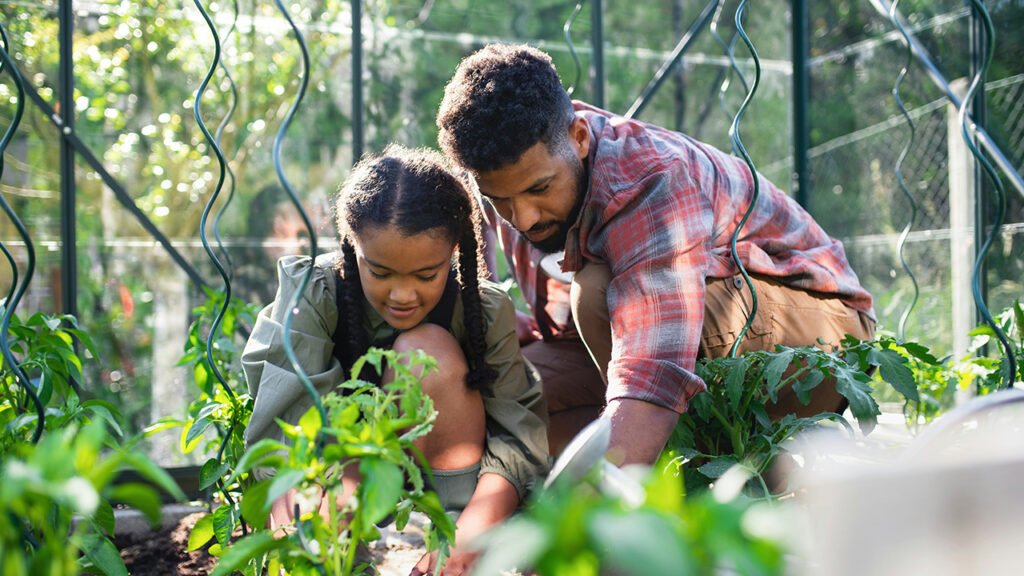
Understanding how to grow food teaches kids patience, responsibility, and respect for nature. Start small with herbs in pots or a tomato plant in the backyard. Gradually introduce them to planting seeds, watering, and harvesting. This skill connects them to the food they eat and builds appreciation for sustainable living.
Navigation and Map Reading

In a digital age, many kids have never used a physical map or compass. Teach them how to read maps, understand directions, and use landmarks to navigate. This skill is invaluable during hikes, road trips, or if they ever find themselves without GPS.
Basic First Aid

Knowing how to handle minor injuries is empowering for kids. Teach them how to clean a wound, apply a bandage, and recognize when to seek help. You can also show them CPR basics and how to treat burns or insect stings. A child with first aid knowledge feels confident and ready to help in emergencies.
Managing Money and Budgeting

Financial literacy starts young. Show your kids how to save, budget, and make smart spending choices. Teach them about needs versus wants, and even introduce them to basic banking concepts. This skill sets them up for financial independence later in life.
Effective Communication Skills

Teach your kids how to express themselves clearly and listen actively. Role-play scenarios like ordering at a restaurant, resolving conflicts, or making phone calls. Strong communication skills are key to building relationships and navigating social situations confidently.
Critical Thinking and Problem-Solving

Encourage your kids to think critically by asking open-ended questions and challenging them to find solutions. You can use puzzles, games, or real-life scenarios like planning a trip. This skill helps them approach challenges logically and find creative solutions.
Basic Home Maintenance
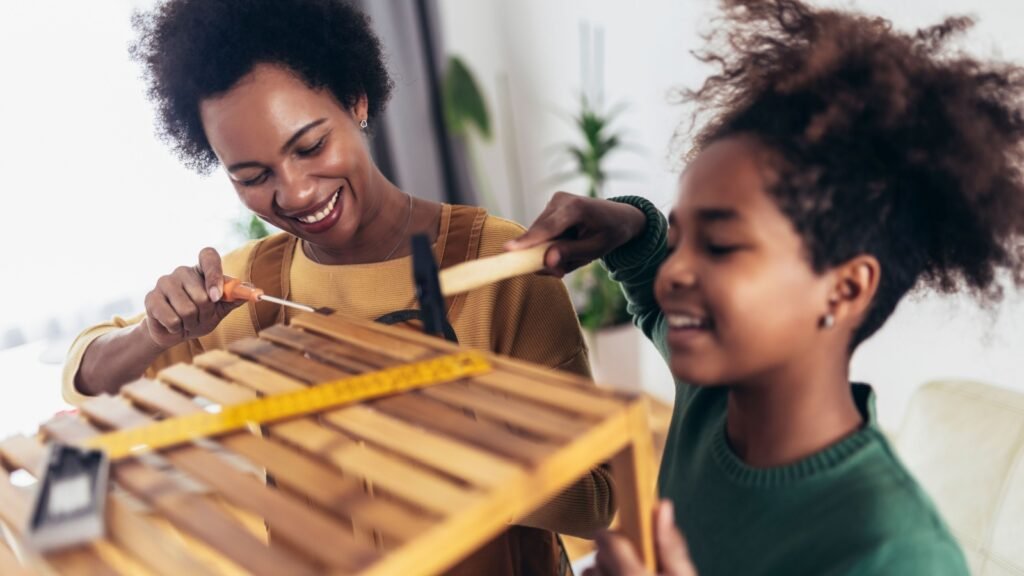
From fixing a leaky faucet to using a screwdriver, basic home maintenance skills are incredibly useful. Show your kids how to safely use tools and perform simple tasks like changing lightbulbs or unclogging a drain. These lessons build confidence and reduce reliance on outside help.
How to Handle Emergencies
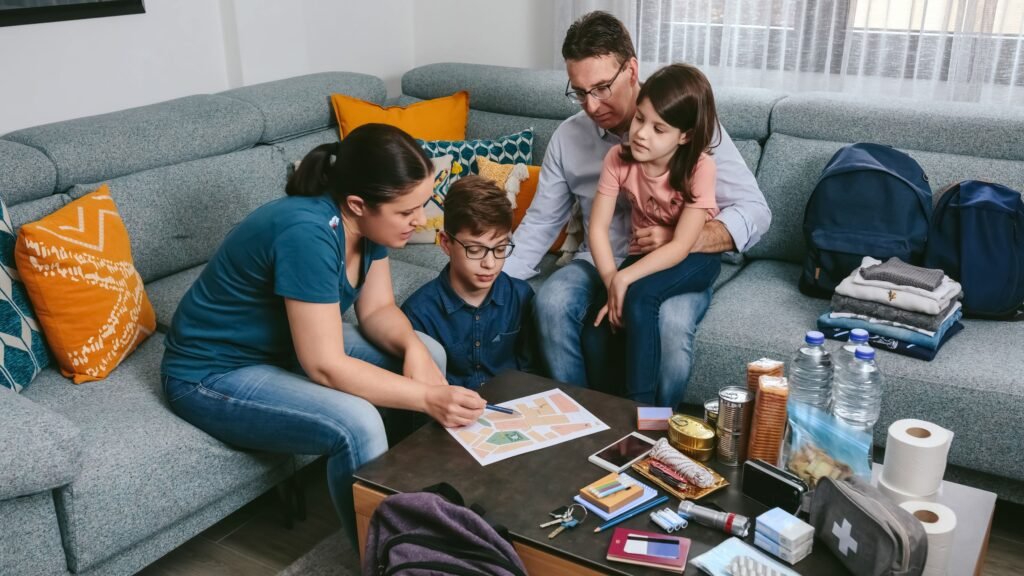
Preparation for emergencies is essential. Teach kids what to do in situations like house fires, severe weather, or getting lost. Practice escape routes, and make sure they know who to call and where to go for help. Being prepared reduces fear and builds trust in their abilities.
Swimming and Water Safety

Swimming is not only fun but also a lifesaving skill. Enroll your kids in swimming lessons or teach them yourself in a safe environment. Emphasize water safety rules, like staying within designated areas and recognizing hazards like currents.
Understanding Basic Animal Care

If your family has pets, get your kids involved in their care. Teach them how to feed, groom, and monitor animals for signs of illness. If you don’t have pets, consider visiting a farm or volunteering at an animal shelter to learn these valuable skills.
Finding and Purifying Water

Knowing how to find and purify water is critical for survival situations. Teach your kids to identify sources like streams or rainwater and show them methods for purification, such as boiling or using water filters. This skill is especially useful during outdoor adventures.
Fire Safety and Building
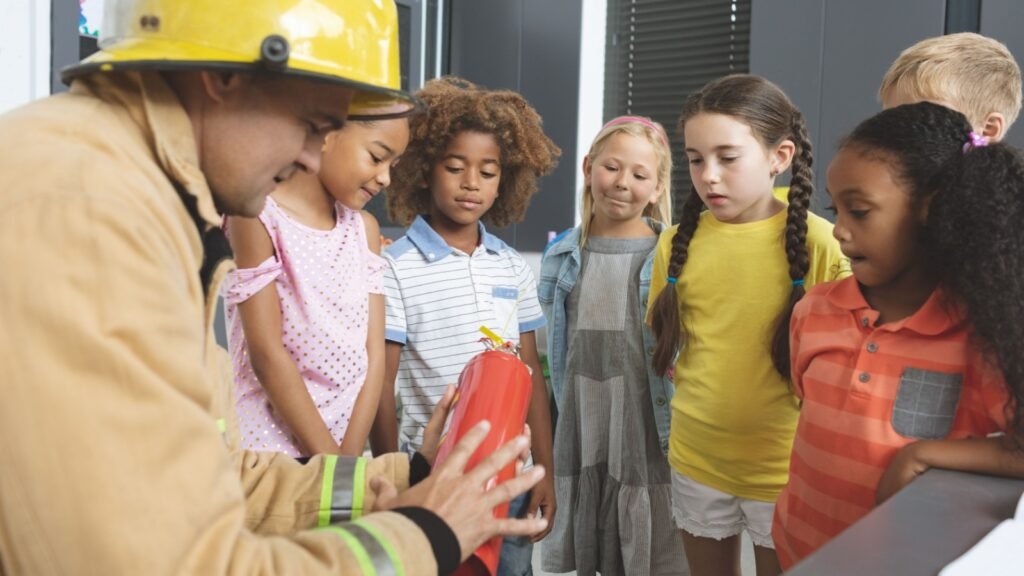
Fire is both a tool and a danger. Teach your kids the basics of fire safety and how to responsibly build and extinguish a fire. Start with small fires for cooking or warmth, and emphasize safety protocols to prevent accidents.
Basic Self-Defense
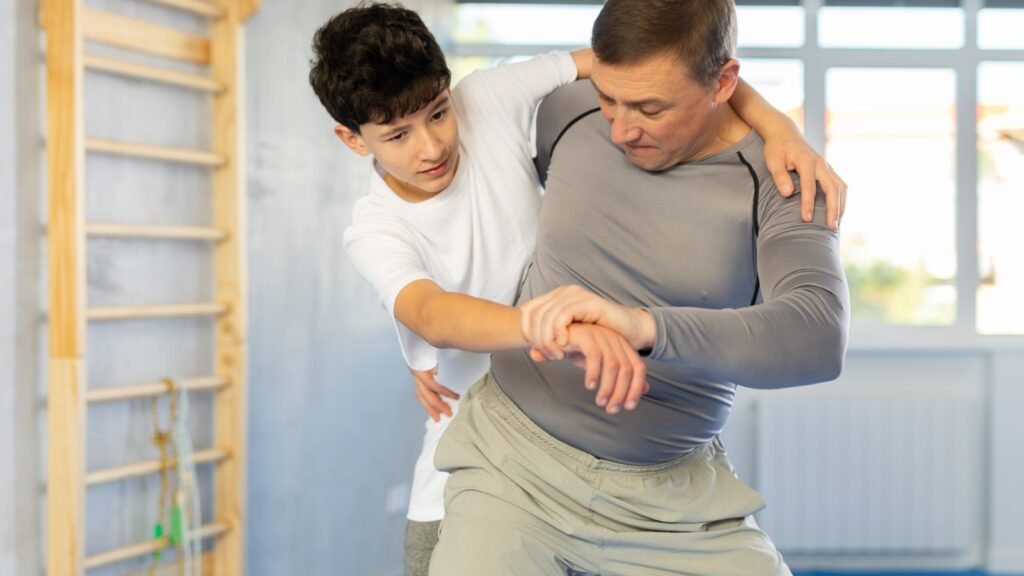
Self-defense isn’t about promoting fear but about fostering confidence and safety. Teach your kids age-appropriate techniques to protect themselves, like recognizing danger and using their voice to call for help. Enrolling them in a self-defense class can provide structured learning in a supportive environment.

